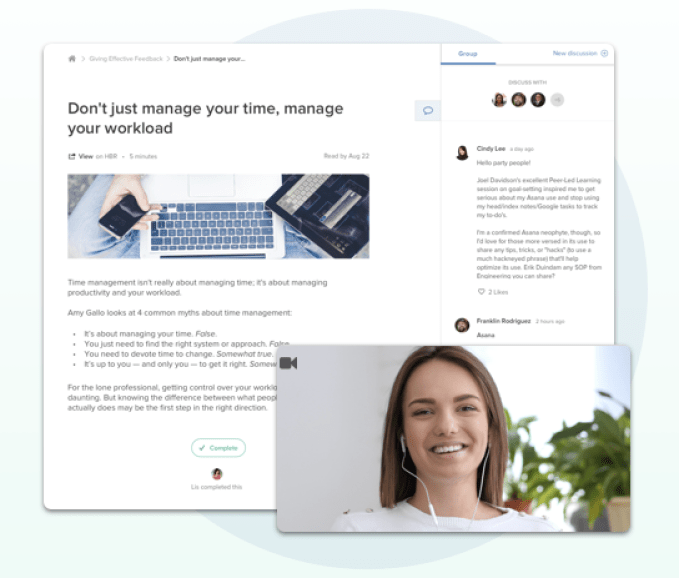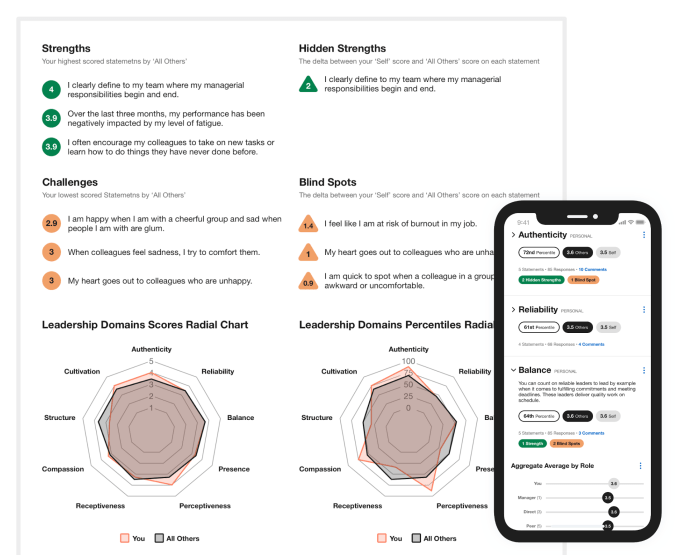While companies might pay for a CEO coach, lower level employees often get stuck with lame skill-building worksheets or no mentorship at all. Not only does that limit their potential productivity, but it also makes them feel stagnated and undervalued, leading them to jump ship.
Therapy…err…executive coaching is finally becoming destigmatized as entrepreneurs and their teams realize that everyone can’t be crushing it all the time. Building a business is hard. It’s okay to cry sometimes. But the best thing you can do is be vulnerable and seek help.
Torch emerged from stealth last year with $18 million in funding to teach empathy to founders and C-suite execs. Since 2013, Everwise has raised $26 million from Sequoia and others for its peer-to-peer mentorship marketplace that makes workplace guidance accessible to rank-and-file staffers. Tomorrow they’ll official announce their merger under the Torch name to become a full-stack career coach for every level of employee.

“As human beings, we face huge existential challenges in the form of pandemics, climate change, the threats coming down the pipe from automation and AI” says Torch co-founder and CEO Cameron Yarbrough. “We need to create leaders at every single level of an organization and ignite these people with tools and human support in order to level up in the world.”
Startup acquisitions and mergers can often be train wrecks because companies with different values but overlapping products are jammed together. But apparently it’s gone quite smoothly since the products are so complementary, with all 70 employees across the two companies keeping their jobs. “Everwise is much more bottom up whereas Torch is about the upper levels, and it just sort of made sense” says Garry Tan, partner and co-founder of Initialized Capital that funded Torch’s Series A and is also a client of its coaching.
How does each work? Torch goes deep, conducting extensive 360-interviews with an executive as well as their reports, employees, and peers to assess their empathy, communication, vision, conflict resolution, and collaboration. clients’ executives do extensive 360-interviews. It establishes quantifiable goals that executives work towards through video call sessions with Torch’s coaches. They learn about setting healthy workplace boundaries, stay calm amidst arguments, motivating staff without seeming preachy, and managing their own ego.
This coaching can be exceedingly valuable for the leaders setting a company’s strategy and tone. But the one-on-one sessions are typically too expensive to buy for all levels of employees. That’s where Everwise comes in.

Everwise goes wide, offers a marketplace with 6000 mentors across different job levels and roles that can provider more affordable personal guidance or group sessions with 10 employees all learning from each other. It also provides a mentorship platform where bigger companies can let their more senior staffers teach junior employees exactly what it takes to succeed. That’s all stitched together with a curated and personalized curriculum of online learning materials. Meanwhile, a company’s HR team can track everyone’s progress and performance through its Academy Builder dashboard.
“We know Gen Z has grown up with mentors by their side from SAT prep” says Torch CMO Cari Jacobs. Everwise lets them stay mentored, even at early stages of their professional life. “As they advance through their career, they might notch up to more executive private coaching.” Post-merger, Torch can keep them sane and ambitious throughout the journey.
“It really allows us to move up market without sacrificing all the traction we’ve built working with startups and mid-market companies” Yarbrough tells me. Clients have included Reddit and ZenDesk, but also giants like Best Buy, Genentech, and T-Mobile.

The question is whether Everwise’s materials are engaging enough to not become just another employee handbook buried on an HR site that no one ever reads. Otherwise, it could just feel like bloat tacked onto Torch. Meanwhile, scaling up to bigger clients pits Torch against long-standing pillars of the executive coaching industry like Aon and Korn Ferry that have been around for decades and have billions in revenue. Meanwhile, new mental health and coaching platforms are emerging like BetterUp and Sounding Board.
But the market is massive since so few people get great coaching right now. “No one goes to work and is like ‘man, I wish my boss was less mindful'” Tan jokes. When Yarbrough was his coach, the Torch CEO taught the investor that while many startup employees might think they thrive on flexibility, “people really want high love and high structure.” In essence, that’s what Torch is trying to deliver — a sense of emotional comradery mixed with a prod in the direction of fulfilling their destiny.
from TechCrunch https://ift.tt/38WvEGa
Comments
Post a Comment